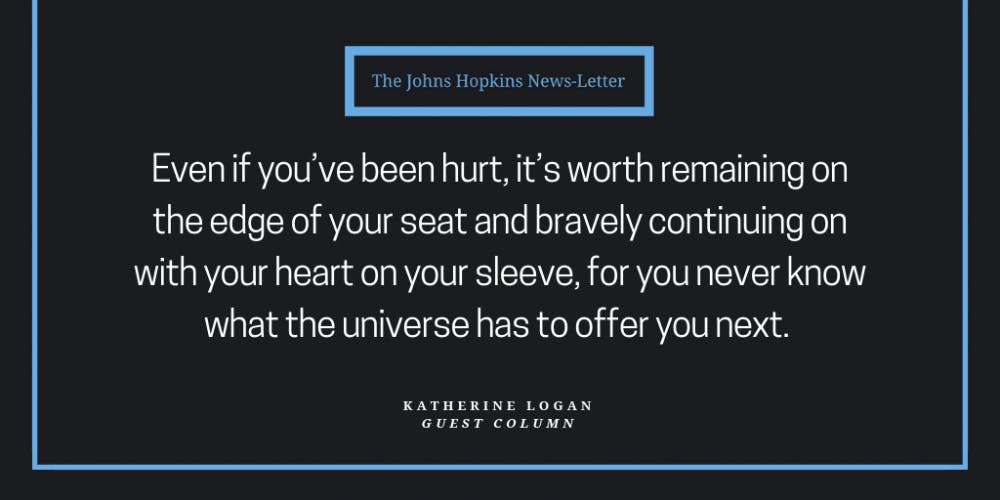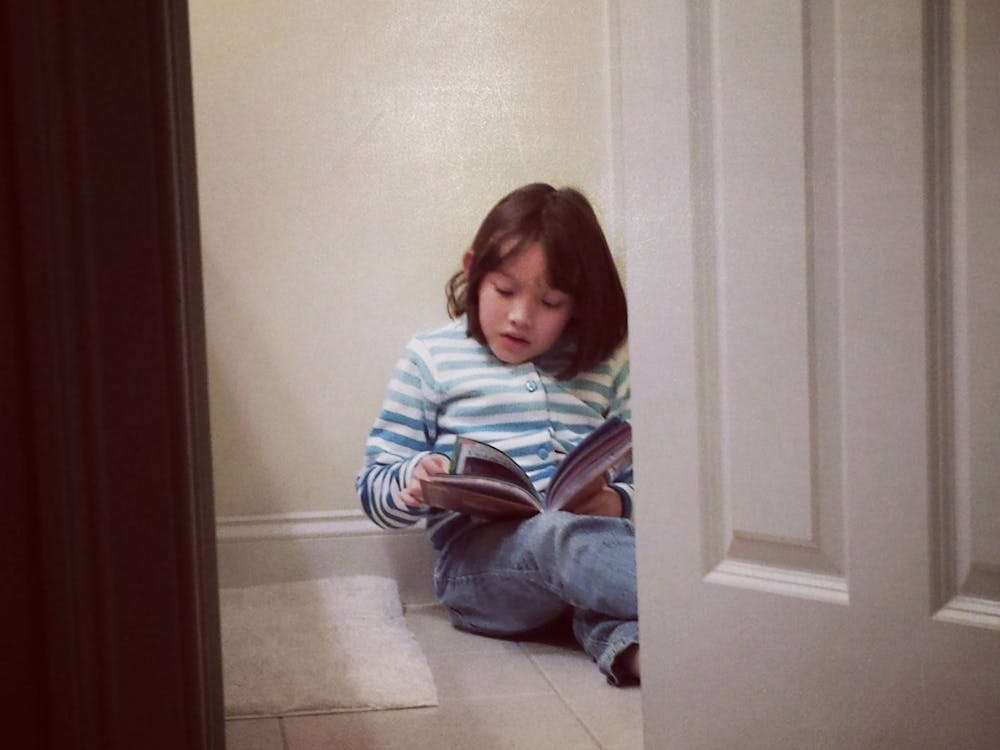
Come each Thursday, I ask my columnists to commit to being vulnerable, to sharing what’s going on in their lives — be it the good, the bad or the ugly — with our readers. Time and time again they surpass my expectations.
As I pondered what to write this week, I realized that often my pieces are celebratory, focusing on family traditions that I treasure or an obstacle I’ve recently stared down; they rarely offer the kind of emotional saliency that strikes me in my favorite, most memorable columns.
Why? Well, admitting that your life isn’t perfect, that you have moments of weakness and sadness and others when you question your own judgment isn’t easy. Yet, such tendencies are also what make us human, something I’ve been reminding myself recently.
On Monday evening, as I scrolled through my Instagram feed, a poem caught my eye. You may remember my interview for The News-Letter last year with the contemporary poet Tyler Knott Gregson. Well, in the time since then he has maintained his practice of posting one free-verse poem and one haiku a day on the subject of love.
This poem, the 2526th in his Typewriter Series, particularly resonated with me as I reflected on a recent brush with rejection: “No such thing as / prepared, / your heart will shatter / and every single / piece / will reflect back / your sorrow. / This is coming, / has before, / will again. / But / slowly, like some / tender sprout, / hope / will grow.”
That word “shattered” so much more adequately captures the experience of losing a relationship with someone you valued than simply “broken.” In the aftermath, you’re left to pick the million jagged pieces of your heart up off of the floor and remake yourself, knowing that you’ll never be the same person that you were before a) you met the other person and b) before the pivotal moment when your expectations of them sharply diverged from your reality (an experience beautifully rendered in 500 Days of Summer).
I could insert a platitude here about such experiences making you stronger, but that would be disingenuous — there are some moments in our personal histories that no silver lining could prove capable of defanging. Telling someone you love to “just get out” when you know that there is simply nothing left for you to say is definitely one of them.
Cheryl Strayed writes that “acceptance is a small quiet room.” I’ve been sitting in it for a little over a week now, and I can report firsthand that it is just as breathtakingly lonely as she makes it sound.
There are the cliché moments of thinking of something funny and wishing you could share it with that person or of hearing a song and feeling awash in the pain of rejection all over again.
But there are also the quieter, more intimate ones of staring at a dish left in your sink or begrudgingly spying that dress that you can so clearly remember wearing on the day you met them in the corner of your closet.
I haven’t discovered a panacea to make the healing process less painful, yet I have come to a few realizations that make sitting in the “small quiet room” a little more bearable. First, if you speak from an honest place, in the moment, while you may still face pangs of uncertainty as you reflect on how things unfolded, wondering what (if anything) you could’ve done differently, you won’t regret your words.
Also, while it might be difficult to admit, a healthy relationship involves compromise, two people meeting each other somewhere in the middle; if the entire weight of reconciliation has been relegated to your shoulders, perhaps that’s a sign that something was awry from the start.
Lastly and maybe most importantly, none of us possesses a way of ascertaining the future. It is impossible to anticipate how you or anyone around you will feel in an hour, a day, a week, and no amount of guesswork can divine an accurate answer. So, even if you’ve been hurt, it’s worth remaining on the edge of your seat and bravely continuing on with your heart on your sleeve, for you never know what the universe has to offer you next.





